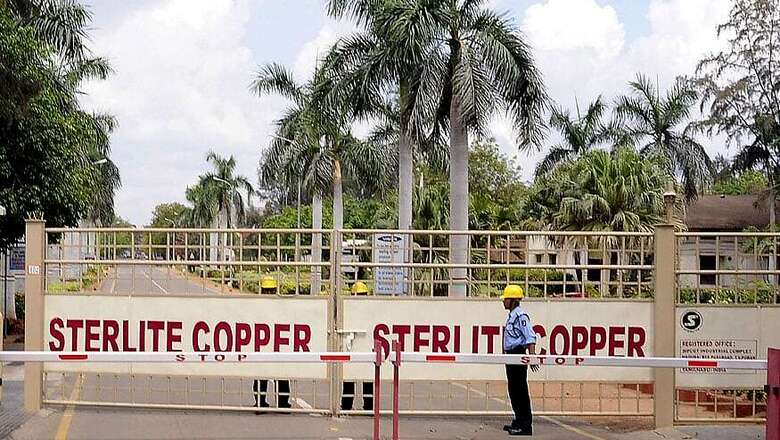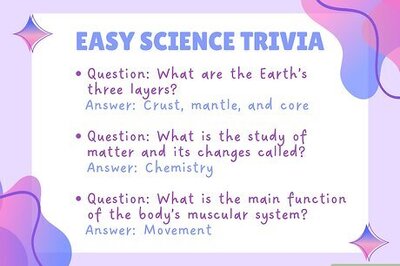
views
Chennai: The Tamil Nadu Pollution Control Board submitted before a panel constituted by the National Green Tribunal here on Sunday that the ambient air quality has improved in the vicinity of the closed Vedanta's Sterlite copper plant in Tuticorin, which was contested by the firm.
The panel, headed by former Chief Justice of Meghalaya High Court, Tarun Agrawal was apprised by the State PCB that Sulphur-di-oxide emission declined very much following the plant's closure, according to intervenors in the matter, Fathima Babu and Thermal S Raja.
"The PCB submitted data of air samples collected in (October 2018) and around the closed Sterlite unit. Several parameters were studied and it showed an improvement in the ambient air quality in the neighbourhood," Babu and Raja who participated in the hearing of the panel told PTI.
Sterlite's counsel said PCB's submissions were contested on grounds that the company was neither intimated nor called upon to participate in the sampling exercise as per norms.
Provisions of law in this respect including those related to the Air Act were not complied with and the tests were done at a private laboratory by the Pollution Control Board and not at a government facility, the cousel who took part in the hearing contended.
On April 9, TNPCB refused to renew its consent to allow Vedanta's copper smelter plant to operate.
The Tamil Nadu government had on May 28 ordered the TNPCB to seal and "permanently" close the mining group's copper plant following violent protests over pollution concerns.
Thirteen people were killed and several injured on May 22 when police had opened fire on a huge crowd of people protesting against environment pollution allegedly caused by the factory.
The panel was constituted by the NGT on August 20 to look into a plea challenging the plant's closure and connected issues, including environmental compliance and submit its report.
The NGT order had said that the "committee may, if necessary, visit the site and consider the technical data and take a decision as early as found viable preferably within six weeks after it assumes its working."
On September 10, the Supreme Court had asked NGT to decide on the merits and maintainability of the issue raised by the Tamil Nadu government on Vedanta's plea, challenging the closure of its plant.



















Comments
0 comment